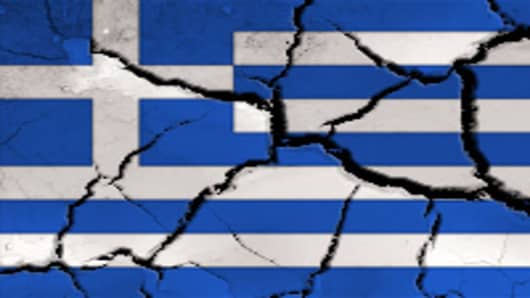The CEO of Europe's largest insurer by gross premiums and market capitalization has called for more aid for Greece and a plan to help the country's growth, according to German media reports.
“Greece cannot be rescued by debt restructuring. We cannot solve the problem only with giving them money. We need an industrialization plan for Greece, comparable to the Marshall plan,” Michael Diekmann, CEO of Allianz, said in an interview with German tabloid Bild.
An Allianz spokesman confirmed the quotes for CNBC.
The Marshall Plan was the plan to rebuild Western Europe after the end of the World War II with American funds to fight the spread of communism.
Diekmann's opinion is shared by others. Jörg Hinze, economist at HWWI (Hamburg World Economy Institute), told CNBC that “Greece needs to be supported by some sort of economic stimulus package.“
Some say Greece needs a business model to be able to start growing its way out of trouble. "Greece does not have a strong industry”, Martin Knapp who heads of the German-Greek Chamber of Commerce, said.
Tourism and shipping contribute 20 percent each to gross domestic product and the country's biggest exporters are family owned business focusing on milk-related products.
A big leap forward is needed for Greece, Diekmann said. “We should move work and production from all across Europe to the country. What is speaking against relocating production plants to Greece instead the Eastern Europe or Asia? That would enormously help Greece to get back on their feet,” he told Bild.
Greece Will Stay in Recession While the Greek economy surprisingly grew in the first quarter of this year, Commerzbank economist Christoph Weil said: “This is not a change of trend…Greece will stay in recession”.
The EU commission expects the Greek economy to shrink by 3.5 percent in 2011. With austerity measures slashing pensions and wages for public workers, domestic demand will not be help growth.
The Greek economy faces a spiral of austerity measures, spending cuts and no economic driving force emerging in this cocktail.
Greece might face cash flow problem as soon as in July Currently the IMF, the EU and the ECB are checking whether Greece is complying with the terms of their bailout package and if they are not happy, the payout of the next tranche of bailout money of 12 billion euros ($16.8 billion) is endangered.
Greek newspaper “Kathimerini” has reported over the weekend that if that happened, this would mean default for the country.
“That would mean by all odds, the bankruptcy of the country”, the Greek Prime Minister George Papandreou told Athens-based newspaper “Ethos”.
Last week the Swedish Finance Minister Andres Borg came up with the idea that Greece should set up a trustee institution to help privatize state assets, similar to the body that privatized East German companies after the fall of communism, called Treuhand.
Over the weekend Eurogroup's Jean-Claude Juncker as well warmed to this idea in an interview with Spiegel: "I would welcome it very much if our Greek friends found a privatization agency independent of the government and modeled after Germany's Treuhandanstalt." According to Juncker, Greece could gain more from privatizations than the 50 billion euros it has estimated.
The IMF last week said that the Greek state owns properties worth 280 billion euros which could as well be sold off.



